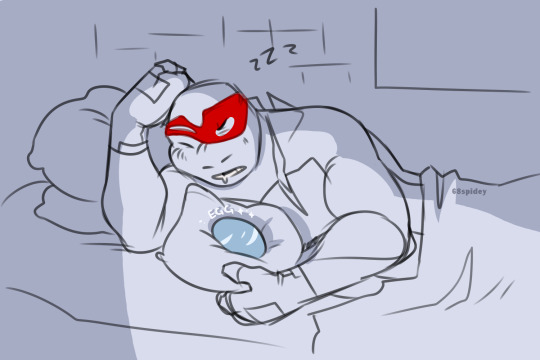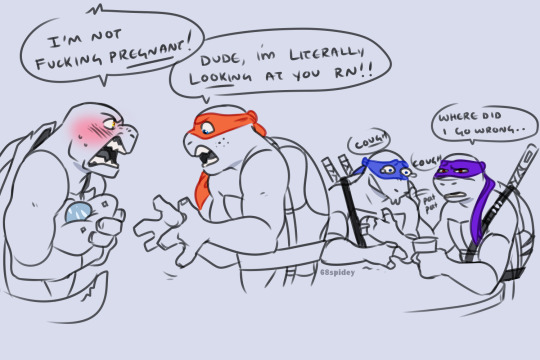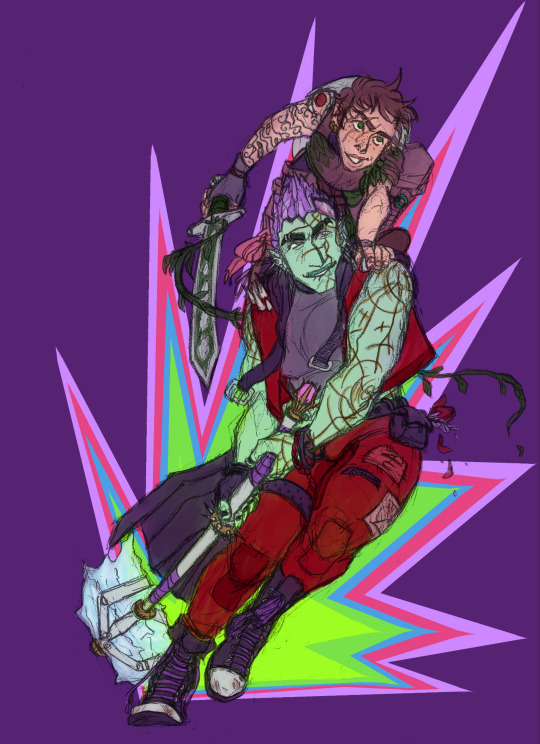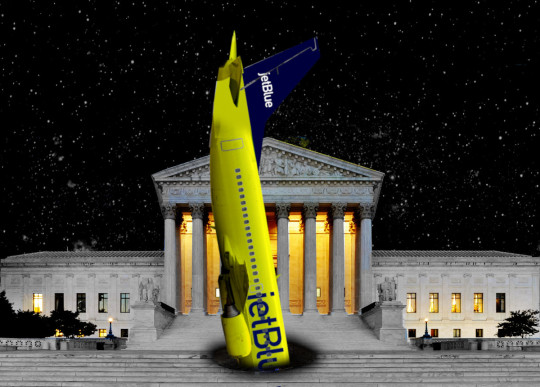#air spirit
Text

I will explain more coherently tomorrow becasue I have taken lmy meds rn and i'm mushy brain wise BUT I have a new OC, her name is Fledgeling and she is Navi's much younger sister (by adoption, not blood)
[Do not use/repost]
38 notes
·
View notes
Text
connecting with air spirit



1. advance your verbal communication skills. develop your verbal communication skills (words, speech, writing) and nonverbal communication skills (body language, laughing, crying, etc), to be better understood by others, and to also get a clearer understanding of other people as well.
2. bond. be open to companionship, friendship, harmonizing and building connections with others, as well as yourself. healthy friendships and relationships can truly bring out the chemistry of life.
3. create your reality. your word is the most powerful tool you have that manifest’s your reality. words are spells, so don’t curse yourself. speak of the heaven you wish to experience and you’ll have that.
4. don’t take life too seriously. be playful. be mischievous. be tricky. be experimental. be different. laugh. escape the drama. stay joyous.
5. take a different route. spice your life up by doing something different than you normally do. eat a new meal. drive on a new road. explore a new shop. watch a new movie.
6. learn more. when something peaks your interest, dive a little deeper and learn more about it. (ex: watch the animal channel. read psychology/spirituality books. take a class.)
7. teach. share your knowledge with others in a way that best suits you. (talking, writing, music, etc). being a mentor and sharing your spiritual knowledge and wisdom, can help assist others to a greater path.
8. be elusive. loose your self limiting perception yourself and just be whatever you want to be in the moment.
9. be innovative. forget the box you’re tryna fit into and create your own lane. combine and mix all the things that you love and own it.
10. find a solution. think like a scientist. there’s always a way to find a answer to every problem. try out everything and don’t be afraid of making mistakes, because in the end you’ll always have the solution.

#sayhoneysiren#air spirit#astrology#zodiac#astro notes#astrology observations#gemini#libra#aquarius#air signs#air#air element#airbenders#verbal communication#writing#reading#books#journaling#friends#socializing#extroverts#yang#masculine energy#masculine#divine masculine#witchcraft#air witch#elements#mentor#spirituality
276 notes
·
View notes
Text


Amexus, forest guardian (top)
Sarhi, Sylph elemental (bottom)
Both are available for adoption here✨
This is the start of my new collection of elementals and spirits, I hope you like them! It would mean so much to me if they found their forever homes soon🌱
#nature#goodvibes#metaphysical#pagan#fairy#handmade#art#sculpture art#art of the day#tumblr artist#tumblr#lol#home#artist support#elemental#green witch#witchy aesthetic#witchy art#forest#air spirit#air element#guardian#protection magic#home decor#healing art#abundance#nurture#fairycore#cottagecore#altarspace
34 notes
·
View notes
Text

Year 1 #1 - Dot and Ziitu fall in love!
#artists on tumblr#digital art#art#creature art#creature design#cute art#zodiac#alien#quirky art#character design#monster#monster art#hoshigloomland#fire spirit#air spirit#bright colors#y1#aries#aquarius#pink heart#dot#ziitu#heart#relationship
0 notes
Text
INVISIBLE FRIENDS

View On WordPress
#air spirit#beam#beautiful#dream#egg#evolution#gateway#ghost#gleam#gold#goldenegg#Grace#hippie#Karma#light#Love#lucid_dreaming#magicrealism#magic_realism#mask#Memory#mutable#neo#Oracle#pagan#pagan_art#peace#philosophy#rhizoid#road_opener
0 notes
Text




@angeldrawstoons "Will your Raph and Mona have any kids?"
AS A MATTER OF FACT-
#yes i made a whole comic to announce it wym#teenage mutant ninja turtles#tmnt 2k17#ramona#2k17 raph#2k17 mikey#2k17 leo#2k17 donnie#comic#mikey has the spirit but he's ... a bit dumb with terms sometimes#art of koi#gonna leave it up in the air who actually made the egg#sometimes i throw trans male raph in the loop#projecting? maybe
1K notes
·
View notes
Text

of course i finally finish this after they have new outfits
#critical role#ashton greymoore#orym of the air ashari#orym#ashrym#cr3#bells hells#the human spirit is incredible. haven't looked at this for MONTHS and now suddenly got thr motivation to finish it#oh well....ig i will draw new one with their updated outfits#sorry i haven't been sharing as much art#i *have* been drawing just. for myself and friends :']
663 notes
·
View notes
Text

#energy#spirit#elements#earth#air#fire#water#alignment#life#spirituality#inner peace#wisdom#love#insight#enlightened#higher self#courage#healing#mindfulness#heart#mind#care#smile#self love#soul#happiness#aura#vibes#positivity#universe
8K notes
·
View notes
Text

Happy Valentine’s Day
#my art#maccadam#megatron#doodle#transformers#starscream#megastar#starscream x megatron#stupid yuri#yuri#b 2 spirit#f 15 strike Eagle#stealth bomber megatron#bomber megatron#bomber megs is a pigeon#air superiority lesbians
393 notes
·
View notes
Text

mcmattdrai nation how are we feeling about tonight !!
#poor leon is resigned to his fate.... sharks catching up soon......#meanwhile somebody better check on connor bc that helmet strap is cutting off his air supply rn#connor mcdavid#matthew tkachuk#leon draisaitl#edmonton oilers#florida panthers#mcmattdrai#mattdrai#mcmatt#mcdrai#hockey art#yjart#battle of alberta#(in spirit)#hrpf#hockey rpf
283 notes
·
View notes
Text
Boeing, Spirit and Jetblue, a monopoly horror-story

Catch me in Miami! I'll be at Books and Books in Coral Gables TONIGHT (Jan 22) at 8PM. Berliners: Otherland has added a second date (Jan 28) for my book-talk after the first one sold out - book now!

Last week, William Young, an 82 year old federal judge appointed by Ronald Reagan, blocked the merger of Spirit Airlines and Jetblue. It was a seismic event:
https://storage.courtlistener.com/recap/gov.uscourts.mad.254267/gov.uscourts.mad.254267.461.0_6.pdf
Seismic because the judge's opinion is full of rhetoric associated with the surging antitrust revival, sneeringly dismissed by corporate apologists as "hipster antitrust." Young called America's airlines and "oligopoly," a situation he blamed on out-of-control mergers. As Matt Stoller writes, this is the first airline merger to be blocked by the DOJ and DOT since deregulation in 1978:
https://www.thebignewsletter.com/p/antitrust-enforcers-block-the-jetblue
The judge wasn't shy about why he was reviving a pre-Jimmy Carter theory of antitrust: "[the merger] does violence to the core principle of antitrust law, 'to protect] markets –- and its market participants — from anticompetitive harm."
The legal arguments the judge advances are fascinating and worthy of study:
https://twitter.com/johnmarknewman/status/1747343447227519122
But what really caught my eye was David Dayen's American Prospect article about the judge's commentary on the state of the aviation industry:
https://prospect.org/infrastructure/transportation/01-19-2024-how-boeing-ruined-the-jetblue-spirit-merger/
Why, after all, have Spirit and Jetblue been so ardent in pursuing mergers? Jetblue has had two failed merger attempts with Virgin, and this is the third time they've failed in an attempt to merge with Spirit. Spirit, meanwhile, just lost a bid to merge with Frontier. Why are these two airlines so obsessed with combining with each other or any other airline that will have them?
As Dayen explains, it's because US aviation has been consumed by monopoly, hollowed out to the point of near collapse, thanks to neoliberal policies at every part of the aviation supply-chain. For one thing, there's just not enough pilots, nor enough air-traffic controllers (recall that Reagan's first major act in office was to destroy the air traffic controller's union).
But even more importantly, there are no more planes. Boeing's waitlist for airplane delivery stretches to 2029. And Boeing is about to deliver a lot fewer planes, thanks to its disastrous corner-cutting, which grounded a vast global fleet of 737 Max aircraft (again):
https://prospect.org/infrastructure/transportation/2024-01-09-boeing-737-max-financial-mindset/
The 737 disaster(s) epitomize the problems of inbred, merger-obsessed capitalism. As Luke Goldstein wrote, the rampant defects in Boeing's products can be traced to the decision to approve Boeing's 1997 merger with McDonnell-Douglas, a company helmed by Jack Welch proteges, notorious for cost-cutting at the expense of reliability:
https://prospect.org/infrastructure/transportation/2024-01-09-boeing-737-max-financial-mindset/
Boeing veterans describe the merger as the victory of the bean-counters, which led to a company that chases short-term profits over safety and even the viability of its business:
https://www.airliners.net/forum/viewtopic.php?t=213075
After all, the merger turned Boeing into the single largest exporter in America, a company far too big to fail, teeing up tens of billions from Uncle Sucker, who also account for 40% of Boeing's income:
https://www.thebignewsletter.com/p/its-time-to-nationalize-and-then
The US government is full of ex-Boeing execs, just as Boeing's executive row is full of ex-US federal aviation regulators. Bill Clinton's administration oversaw the creation of Boeing's monopoly in the 1990s, but it was the GOP that rescued Boeing the first time the 737 Maxes started dropping out of the sky.
Boeing's biggest competitor is the state-owned Airbus, a joint venture whose major partners are the governments of France, Spain and Germany – governments that are at least theoretically capable of thinking about the public good, not short-term profits. Boeing's largest equity stakes are held by the Vanguard Group, Vanguard Group subfiler, Newport Trust Company, and State Street Corporation:
https://prospect.org/blogs-and-newsletters/tap/2024-01-18-airbus-advantage/
As Matt Stoller says, America has an airline that the public bails out, protects, and subsidizes but has no say over. Boeing has all the costs of public ownership and none of the advantages. It's the epitome of privatized gains and socialized losses.
This is Reagan's other legacy, besides the disastrous shortage of air-traffic controllers. The religious belief in deregulation – especially deregulation of antitrust enforcement – leads to a deregulated market. It leads to a market that is regulated by monopolists who secretly deliberate, behind closed board-room doors, and are accountable only to their shareholders. These private regulators are unlike government regulators, who are at least nominally bound by obligations to transparency and public accountability. But they share on thing in common with those public regulators: when they fuck up, the public has to pay for their mistakes.
It's a good thing Boeing's executives are too big to fail, because they fail constantly. Boeing execs who are warned by subcontractors of dangerous defects in their planes order those subcontractors to lie, or lose their contracts:
https://www.levernews.com/boeing-supplier-ignored-warnings-of-excessive-amount-of-defects-former-employees-allege/
As a result of Boeing's mismanagement, America's only aircraft supplier steadily has lost ground to Airbus, which today enjoys a 2:1 advantage over Boeing. But it's not just Boeing that's the weak link aviation. US aviation is a chain entirely composed of weak links.
Take jet engines: Pratt & Whitney are Spirit's major engine supplier, but these engines suck as much as Boeing's fuselages. Much of Spirit's fleet is chronically grounded because the engines don't run. The reason Spirit buys its engines from those loveable goofballs at Pratt & Whitney? The Big Four airlines have bought all the engines for sale from other suppliers, leaving smaller airlines to buy their engines from fat-fingered incompetents.
This is why – as Dayen notes – smaller US airlines are so horny for intermarriage. They can't grow by adding routes, because there are no pilots. Even if they could get pilots, there'd be no slots because there are no air traffic controllers. But even if they could get pilots and slots, there are no planes, because Boeing sucks and Airbus can't make planes fast enough to supply the airlines that don't trust Boeing. And even if they could get aircraft, there are no engines because the Big Four aviation cartel cornered the market on working jet engines.
Part of Jetblue and Spirit's pitch was that they hand off the routes that they'd cut after their merger to other small airlines, like Frontier and Allegiant. But Frontier and Allegiant can't service those routes: they don't have pilots, slots, planes or engines.
Spirit hasn't been profitable since 2019 and is sitting on $4b in debt. Jetblue was proposing to finance its acquisition with another $3.5b in debt. The resulting airline could only be profitable by sharply cutting routes and massively raising prices, cutting 6.1m seats/year. With a debt:capital ratio of 111%, the company would have no slack and would need a bailout any time anything went wrong. Not coincidentally, the Big Four airlines also have debt:capital ratios of about 100-120%, and they do get bailouts ever time anything goes wrong.
As William McGee reminds us, it's been 14 years since anyone's started a new US airline:
https://twitter.com/WilliamJMcGee/status/1747363491445375072
US aviation is deeply cursed. But Boeing's self-disassembling aircraft show us why we can't fix it by allowing mergers: private monopolies, shorn of the discipline of competition and regulation, are extraction machines that turn viable businesses into debt-wracked zombies.
This is a subject that's beautifully illustrated in Dayen's 2020 book Monopolized, in the chapter on health care:
https://pluralistic.net/2021/01/29/fractal-bullshit/#dayenu
The US health care system has been in trouble for a long time, but the current nightmare starts with the deregulation of pharma. Pharma companies interbred with one another in a string of incestuous marriages that produced these dysfunctional behemoths that were far better at shifting research costs to governments and squeezing customers than they were at making drugs. The pharma giants gouged hospitals for their products, and in response, hospitals underwent their own cousin-fucking merger orgy, producing regional monopolies that were powerful enough to resist pharma's price-hikes. But in growing large enough to resist pharma profiteering, the hospitals also became powerful enough to screw over insurers. Insurers then drained their own gene pool by combining with one another until most of us have three or fewer insurers we can sign up with – companies that are both big enough to refuse hospital price-hikes, and to hike premiums on us.
Thus monopoly begets monopoly: with health sewn up by monopolies in medical tech, drugs, pharmacy benefit managers, insurance, and hospitals, the only easy targets for goosing profits are people:
https://pluralistic.net/2022/01/05/hillrom/#baxter-international
This is how you get a US medical system that costs more than any other rich nation's system to operate, delivers worse outcomes than those other systems, and treats medical workers worse than any other wealthy country.
Now, rich people can still buy their way out of this mess, but you have to be very rich indeed to buy your way out of the commercial aviation system. There's a lot of 1%ers who fly commercial, and they're feeling the squeeze – and there's no way they're leasing their own jets.
Stein's Law holds that "anything that can't go on forever will eventually stop." America's aviation mergers – in airlines, aircraft and engines – have hollowed out the system. The powerful, brittle companies that control aviation have so much power over their workforce that they've turned air traffic controller and pilot into jobs that no one wants – and they used their bailout money to buy out the most senior staff's contracts, sending them to early retirement.
Now, I'm with the people who say that most of US aviation should be replaced with high-speed rail, but that's not why our technocrats and finance barons have gutted aviation. They did it to make a quick buck. A lot of quick bucks. Now the system is literally falling to pieces in midair. Now the system is literally on fire:
https://www.nytimes.com/2024/01/19/us/miami-boeing-plane-engine-fire.html
Which is how you get a Reagan appointed federal judge issuing an opinion that has me punching the air and shouting, "Yes, comrade! To the barricades!" Anything that can't go on forever will eventually stop. When the system is falling to pieces around you, ideology disintegrates like a 737 Max.

I'm Kickstarting the audiobook for The Bezzle, the sequel to Red Team Blues, narrated by @wilwheaton! You can pre-order the audiobook and ebook, DRM free, as well as the hardcover, signed or unsigned. There's also bundles with Red Team Blues in ebook, audio or paperback.

If you'd like an essay-formatted version of this post to read or share, here's a link to it on pluralistic.net, my surveillance-free, ad-free, tracker-free blog:
https://pluralistic.net/2024/01/21/anything-that-cant-go-on-forever/#will-eventually-stop

Image:
Vitaly Druchenok (modified)
https://commons.wikimedia.org/wiki/File:ECAir_Boeing_737-306_at_Brazzaville_Airport_by_Vitaly_Druchenok.jpg
CC BY-SA 4.0
https://creativecommons.org/licenses/by-sa/4.0/deed.en
--
Joe Ravi (modified)
https://commons.wikimedia.org/wiki/File:Panorama_of_United_States_Supreme_Court_Building_at_Dusk.jpg
CC BY-SA 3.0
https://creativecommons.org/licenses/by-sa/3.0/deed.en
#pluralistic#aviation#antitrust#monopoly#boeing#jetblue#spirit airlines#oligopoly#air traffic controllers#airbus#steins law
248 notes
·
View notes
Text

#artists on tumblr#digital art#art#creature art#creature design#cute art#aquarius#zodiac#alien#quirky art#character design#monster#monster art#hoshigloomland#air spirit#newhoshi#air#bright colors#y1
1 note
·
View note
Text
Karen Jay
AT HOME ALONG THE BANKS OF THE RIVANNA

View On WordPress
#air spirit#beautiful#bridge#C’ville#dream#Everett WA#evolution#floods#gateway#Graphis#jay#Karma#lucid_dreaming#magicrealism#Memory#pagan art#portrait#rivanna#River#road opener#soul#spell#surreal#time#tobeimean_peter#Virginia#Visions#Wheel#witchcraft#woman
0 notes
Text

#twinkling lights#christmas lights#christmas tree#sparkle#magical christmas#magic is in the air#this is beautiful#beautiful photos#christmas spirit#spirituality#xmasvibes#xmasiscoming#merry xmas
2K notes
·
View notes
Text
ashton saying “I think it’s important to realize what we’re fighting for, and that’s us. so it’s not worth it if we’re going to lose somebody.” and laudna carefully saying “I feel like we all have to accept, or at least be aware that that is a possibility, though. right?” and fearne stating “no, no, no, no, no, no. we’re all going to get out of this. we’re all going to be alive. we’re going to be so happy.” and orym saying simply “I think about it a lot.” whew everyone’s trauma is so present in this conversation,,,
ashton, having lost almost everyone they ever loved or were loyal to, refusing to even entertain that as a potential outcome again,,, laudna, having died tragically over and over, reminding the others that death is a real and present possibility,,, fearne, who was made to choose which one of her two dead friends to bring back, who is continually forced to face feelings of grief and guilt in this realm,,, and orym, who lost his father and his husband in an attack he now knows was nothing more than practice for a power grab, who is never not thinking about his dead father and his dead husband or all the other people he’s had to say goodbye to and how present loss always is for him,,,
#critical role#ashton greymoore#ashton#laudna#fearne calloway#fearne#orym of the air ashari#orym#bell's hells#kindling the spirits#c3e73#cr meta
192 notes
·
View notes
